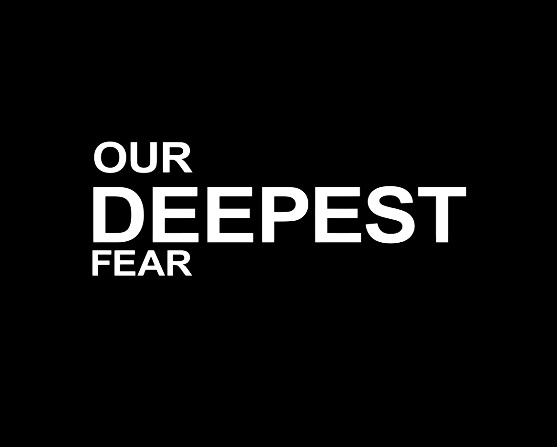PORTRAIT: 🎨 Joya Cousin, originaire d’Antigua-et-Barbuda, a trouvé en Bretagne une passion et un don pour la peinture ✏️ À Vannes, elle réalise des portraits plein de couleurs, qu’elle exposera pour la première fois en septembre 2019.
Time Lapse: Starting a 5-foot portrait of Natalie Portman
Time Lapse: Painting Pat Evans
Art of the Day: Jing Wen
Here’s my painting of Chinese model, Jing Wen.
I was drawn to the beauty of her strong angular features, the intensity in her eyes, and the fierceness of her facial expression. I love the contrast between the warm tones of her skin and the cool sea-foam and blue colors in the background. I have used a free brushwork technique that allows the background colors to interact with the subject to create a dreamlike feeling in the painting. She looks like an ethereal modern-day warrior princess.
Please leave me a comment to let me know if you like this piece!
Bye Bye, Brutha-K
I’m saying goodbye to one of my favorite paintings – ‘Brutha-K’ has now been boxed up and is ready for shipping to Antigua. This painting joins my other piece ‘Antiguan Girl’ along with many other beautiful artworks from artists around the world being auctioned in aid of hurricane relief for Barbuda and Dominica. The ‘Art for the Islands’ Fundraising exhibition takes place on December 2nd in English Harbour, Antigua. I will miss him, but I hope he finds a lovely new home.
If you will be in Antigua, and plan on attending this event in aid of a very worth cause, please leave me comment below to let me know!
Au revoir…
Work in progress – Iris Apfel
5 Ways to Inspire Millennials at Work
Business leaders, entrepreneurs and other professionals often bemoan the apparent lack of commitment, loyalty and ambition present in Generation Y employees. Those 80s and 90s babies buck workplace convention. They talk back. They want to dress differently, are bored easily and come across as wanting life handed to them on a platter. Why is it that Millennials seem to want to frustrate us by constantly asking ‘Why?’
Isn’t this much the same way each new generation has been perceived by the one before it? How many lectures did you hear during childhood about how much ‘easier’ things are now? Didn’t your grandparents go on similar rants with your parents? Could it be that Millennials are unwittingly challenging us to raise our standards?
The truth is that each generation gets progressively smarter, stronger, more creative. “More entitled, too!”, you might add. Perhaps. Technology is advancing at a mind-numbing rate. We’re all for advancement, but what really bothers the old-fogies is that many of the old rules don’t apply. We find it incongruously unfair that flip-flop clad software geeks who skateboard to work are changing the world daily.
How can we bridge the generational chasm? How can we positively influence the young adults who don’t happen to be Silicon Valley billionaires, but turn up somewhat disheveled and slightly late to work each day? How do we engage the Snapchat generation? More importantly, how do we start inspiring Gen Ys to start focusing their energies on developing the skills necessary to make them tomorrow’s capable leaders?
I read an excellent article by Graham Winfrey titled ‘Are Millenials Giving Up on Working?‘. The article’s accompanying infographic by training firm Virtuali highlights the following disturbing statistics:
- 66% of millennials are disengaged at work
- 91% of millennials plan on leaving their job within 3 years
Below, I have adapted the infographic’s five points to consider for increasing engagement and inspiring leadership in Millennials:
1. To inspire leadership, be a leader
The Millennial understanding of leadership is not one that springs forth from rank or title. Gen Ys will not bestow loyalty and obedience solely on the basis of tenure or seniority. “They have no respect!”, you may say, but young people believe that respect should be earned, and that leadership is lived out in our actions every day. To be a leader in the eyes of the younger generation, demonstrate that you are worth following.
2. To inspire leadership, consistently provide development opportunities
Young people do not view training programs as perks for good performance or a rewards for good behavior. As a consequence of growing up in the information age, Millennials believe that leadership development should be a universal benefit provided by employers. Adopt this attitude and watch your younger charges begin to bloom.
3. To inspire leadership, more show; less tell
At its most effective, learning for Millennials should be personal, relevant and enjoyed. As leaders, we should seek to provide learning opportunities every time we interact with those under our direction. Provide clear proof to those you lead that you are personally invested in their growth and development, and their engagement will begin to skyrocket.
4. To inspire leadership, perfect your communication skills
No matter how much experience you have or how many accolades decorate your office walls, it is your behavior that will cement your value and reputation in the hearts and minds of younger employees. Above technical know-how, Millennials value your ability communicate clearly, how well you listen, your receptiveness to new ideas, and how effectively you show you care. Work on honing these skills every day.
5. To inspire leadership, provide diverse work opportunities
Gen Ys crave novelty and variety, and will not be willing to give their all at workplaces that do not offer new and interesting opportunities. To young people, loyalty is a two-way street. Here’s where some creativity is required. Shake things up sometimes. Make it part of your people strategy to provide new knowledge to your people on an ongoing basis through cross-training, departmental rotations and intra-office secondments.
Please share your own experiences and ideas for inspiring and engaging younger people in the workplace. Do you find it challenging to inspire them to give of their best? In what ways are you actively creating robust succession paths for leadership?
How to be a Winner: 10 Attitude-Adjusting Commitments to Make to Yourself
The Comfort of Mediocrity
Growing up, I struggled with low self-esteem. Sometimes I would get ‘A’s at school, but because of my poor self-image, I would often get ‘C’s and occasionally ‘F’s. I was bright and talented, but I was not confident enough to apply myself to my studies or to sports or to art. I was inconsistent – at everything.
I had a desire for success, but I wanted to do well without actually trying. I was mortified of daring to really study. What if I tried my best and then failed? Even worse, I was scared of putting in the effort, and actually succeeding. That would mean I would have to continue working hard to keep it up. Then the pressure would really be on. I remember being angry at my parents for not pushing me, but deep down I knew that it was my responsibility to live up to my own potential. It was only after leaving university that I decided to face my fears and begin working hard. It was only after adjusting my attitude that I began to succeed.
The comforting lie of mediocrity is that if we don’t bother to try, we won’t ever have to take responsibility for succeeding. Most people continue to fly beneath the radar and live below their potential because they’re terrified of deciding to be successful. Let’s face it, success is a scary thing.
Attitudes + Habits = Destiny
I read a lot. I soak up non-fiction, business books, books on self-development, classics and biographies. My reading is driven by a thirst for knowledge and for an appreciation of different perspectives. I am curious as to why is it that some people are happy, while others are not. Why is that some people succeed, and others don’t? After reading hundreds of books, and through my own experiences, I can conclude that the secret of success is a simple one.
Our attitudes, plus our habits shape our destiny. Our way of thinking shapes our prevailing attitude towards life. Our attitudes in turn direct our actions and our reactions. These daily practiced actions and reactions take on the predictable pattern that forms our habits. How we think, how we feel and what we do every day takes us step by step along the path that is our destiny.
It isn’t rocket science. The path you are on right now can be traced back to what you’re thinking, what you’re feeling and what you’re doing. If you feel like a victim, you will not act like a winner. If you think that you haven’t been given enough opportunities in life, you will not develop the habits that will help you to succeed.
If you want to achieve the happiness and success you desire, you must reset two things: your attitude, and your habits. In order to succeed, you must commit to adjusting the thoughts that go through your head every day. To be a winner, you must commit to reshaping your daily habits.
Here are ten commitments to make to yourself today to re-adjust your attitudes, re-shape your habits and re-set your destiny:
#1. I will succeed
Decide to challenge yourself to achieving the biggest, hairiest goal you can dream up for yourself. That dream exists in your heart because you know you have what it takes to do it. Don’t play it safe. Dare to make the new commitment to yourself: I will succeed.
#2. I accept full responsibility
When you make a decision to win, you must also accept responsibility for making it to your goal no matter what. Whether you’re from a challenging background, have no resources or have physical disabilities, you must make the commitment to yourself to accept full responsibility. Continue to say to yourself “I am responsible”. Repeat it over and over until it sinks in: “I accept full responsibility for my success”.
#3. I will decide on a strategy
Long-term success does not happen by accident. Figure out what needs to be done in order to achieve your goal. You don’t need to have the entire plan in mind; begin with a general idea. At each stage, you must know exactly what needs to be done next, otherwise you will choke. Commit to always pushing yourself to decide what comes next.
#4. I will do the work
This is the absolute hardest part. Planning and preparation can be fun and easy. Starting is hard. Doing is hard. Continuing to work after you’ve experienced failure is the hardest of all. But as every champion will tell you, there can be no success without first overcoming obstacles. You must do the work it takes to succeed. Commit to yourself: I will do the work.
#5. I will learn each day
In order to be a winner you must always be learning. Continuous growth and development are absolutely necessary to be a winner. Study your craft. Expand your mind. Read. Take the time to carefully analyze what’s working well, and what needs to be discarded. If you’re not growing, you’re dying. Make the commitment to become better each day through learning.
#6. I will compete only with myself
There will always be people better looking than you, more talented than you, richer than you, smarter than you. Make the commitment to compete only with yourself. When you constantly challenge yourself to be better than you were the day before, you will come out on top. Commit: I will compete only with myself.
#7. I will make no excuses
Life constantly throws us curve balls. Hurricanes happen, banks fail, we get ill. Regardless of what fate throws your way, just keep going. Forget what’s happening around you and find inspiration in your added challenges. Refuse to ever make excuses.
#8. I will give 100%
In order to win, you must persist until you succeed. You must force yourself to give 100% of yourself every time. If you don’t, you just won’t make it. Go out determined to win every battle. There are so many stories of people who came so close. But that’s not you. You will make the commitment. You will always give 100%!
#9. I refuse to play small
Doing the work, learning every day and competing with yourself is not easy. The decision to succeed demands sacrifice and passion and dedication. Never pretend to yourself or anyone else that you aren’t going to win. The voice in your head that says you’ll never make it will always be greater than the external voices of discouragement. Once you become master of the voice in your own head, haters will not even exist for you. Poof! They will disappear. It’s not about being arrogant, just refuse to play small.
#10. I will never give up
Your journey will be a series of ups and downs. There will be victories and there will be defeats. But, even when things look darkest, even after repeated failures, don’t ever give up. You’re on a path. You’ve chosen your destiny. You have made the commitment to succeed, and succeed you must.
10 Ways to Spot A Weak Finance Executive
My career in finance and accounting began in 1997 when I landed a job as an Audit Associate with Ernst & Young. In the years since, I’ve worked with three of the ‘Big Four’ accounting firms, as well as Financial Controller and CFO in several industries before removing my accounting hat to take on the role of General Manager.
The expectations of the role of the chief accountant, finance manager, financial controller, finance director and chief financial officer have evolved over the years. The accounting profession is no longer the realm of ‘bean counters’ in dark, dingy offices piled high with papers and over-flowing with adding machine tape. Today’s accounting professional is no longer just an administrator or cost cutter, but a part of the heartbeat of the organization’s success.
More than ever, there is an increasing demand for highly skilled accounting professionals. Today’s finance executive is a key partner in the business, creating value and providing a high return on investment. Top performers expand their repertoire of skills beyond the purely financial to become true leaders within their organization. Unfortunately, weak financial managers still outnumber the excellent ones. Here are ten ways to spot them:
1. Weak finance executives frequently miss deadlines
Ineffective finance managers forget that for financial reports to be effective, they must be provided to decision-makers in a timely manner. The most basic requirements of finance managers are that they have fundamental accounting skills and the ability to provide timely reports by effectively managing the finance department. Strong financial executives work well under pressure to produce timely, reliable and accurate information.
2. Weak finance executives confuse working hard with delivering results
Finance is a demanding field that often requires working long hours. Ineffective finance professionals seem to get addicted to putting in long hours without tying the strenuous effort to tangible goals and visible improvements. Excellent finance managers put in the work required, but become noticeably more efficient over time. They focus on adding value and becoming better at what they do, rather than just burning the midnight oil.
3. Weak finance executives are stuck behind their desks
Have you ever met a chief accountant who lives behind his or her desk? While the finance function crosses all areas of the business, ineffective financial executives are out of touch with the day-to-day happenings of the organization. Failing to understand the importance of having “a finger on the pulse”, ineffective finance managers do not assert themselves as leaders, they fail to expose themselves to the front line, and miss the opportunity to get to know others. As a result, ineffective financial executives find themselves ignored by both colleagues and line staff.
4. Weak finance executives do not have the support of the GM or CEO
Your financial controller might be a poor one if he or she has not developed a strong relationship with the boss. The relationship between a financial executive and the general manager is one of the most critically important to the success of the organization. Skilled finance professionals make it a priority to win the trust of leaders and make sure that there is open and frequent communication.
5. Weak finance executives are poor communicators
Poor financial executives lack well-developed communication skills. They often appear uncomfortable interacting with others and fail to engage effectively with people at all levels of the organization. Skillful financial executives clearly and concisely communicate the financial performance of the company and the availability of resources both orally and in writing. They are also not afraid of delivering bad news and will provide information to bosses and shareholders without having to be asked.
6. Weak finance executives have a limited understanding of the business
Your finance director might be a poor one if he doesn’t have a solid understanding of all aspects of the business. A common red flag of an inept accountant is a failure to grasp critical processes and non-financial drivers in areas such as sales, production or marketing. An effective finance executive will have well-developed commercial skills. He or she will be intimately familiar with functioning of the various cycles in the business, their strengths and weakness, as well as their relative levels of criticality to success.
7. Weak finance executives fail to attract, build and retain effective teams
An excellent finance director is only as good as the team supporting him or her. Many executives fail to remember the importance of attracting the best and the brightest people. They fail to create a nurturing environment which challenges young professionals. Many managers expect hard work from their junior accountants without providing them with coaching, rigorous development plans and a clear path for advancement. When ineffective finance managers fail to build loyalty and trust, they find themselves suffering the disrupting cycle of losing key people, rehiring and retraining.
8. Weak finance executives provide poor cash management
While every company encounters liquidity challenges at some point, companies with unfit accountants encounter frequent difficulties meeting important financial obligations, paying key suppliers, and missing payroll. A strong financial executive will think ahead in order to skillfully juggle scarce funds, negotiate with suppliers and perform miracles to ensure that staff are never paid late.
9. Weak finance executives fail to appropriately challenge the management team
Inept CFOs often find themselves intimidated by their colleagues, and allow them to get away with murder. Having the self-confidence to appropriately challenge fellow executives about targets, variances and overall performance is a critical requirement of the skillful financial executive. Incapable accountants demonstrate shaky leadership qualities and lack the gravitas to hold the executive team accountable.
10. Weak finance executives fail to add value
Weak accountants are undisciplined, pay insufficient attention to detail and often produce low-quality reports which are riddled with errors. Ineffective finance managers have the under-developed interpretive skills which result in poor forecasts based on faulty models with incorrect assumptions. A sound finance executive is fiercely committed to achieving results. He or she is passionately engaged in achieving the goals of the company, and this hunger drives excellence in his or her work. Competent financial executives are highly disciplined, fluent with their numbers, able to think strategically and have the ability to translate plans into effective action.
Here’s a short version of this blog post as a Slideshare presentation:
Our Deepest Fear
The lines below written by Marianne Williamson in her book, A Return to Love, published in 1996. The verse has also been incorrectly attributed to Nelson Mandela, as having been included in his inaugural address. Over the years, these words have inspired millions.
These words have been inspiring me since I first came across them in 1999. They powerfully speak to the fact that many of us live our lives not so much afraid of failure, but afraid of achieving our true potential. We feel comfortable ‘flying below the radar’, so as not to attract attention and possibly criticism, rather than spreading our wings and seeing how far we can fly. I hope they challenge you to always shine at your brightest, and to continue to work toward becoming the best possible version of yourself.
“Our deepest fear is not that we are inadequate.
Our deepest fear is that we are powerful beyond measure.
It is our light, not our darkness that most frightens us.
We ask ourselves, ‘Who am I to be brilliant, gorgeous, talented, fabulous?’
Actually, who are you not to be?
You are a child of God.
Your playing small does not serve the world.
There is nothing enlightened about shrinking so that other people won’t feel insecure around you.
We are all meant to shine, as children do.
We were born to make manifest the glory of God that is within us.
It’s not just in some of us; it’s in everyone.
And as we let our own light shine, we unconsciously give other people permission to do the same.
As we are liberated from our own fear, our presence automatically liberates others.”
–from A Return to Love, by Marianne Williamson.
What Are You Grateful For Today?
Did you take a moment to be grateful today? Gratitude consists of being fully aware of your current circumstances with all its worrying details, both big and small, and being able to recognize the good.
“In ordinary life we hardly realize that we receive a great deal more than we give, and that it is only with gratitude that life becomes rich.” ― Dietrich Bonhoeffer
In our modern daily lives, it is easy to take for granted the gifts we have been given by the many thousands of people who have gone before us. It is mind-boggling to try to fathom the effort that has gone into giving us the lives we enjoy simply by virtue of having been born in the 20th century.
Consider the desktop computer, laptop, handheld tablet or smart phone on which you are reading this post. Only a genius could fully comprehend all the details, the intricate science, engineering and technology used to develop and manufacture it. Try to imagine the time and effort that went into making each item of clothing you are wearing now – how the cotton was grown, and picked and spun and then woven into cloth, and dyed into interesting fabric. Think of the designers who envisioned the cut and style of the garments. Ponder the work of the people involved in creating and sewing the patterns. Contemplate the last meal you ate—even if it was only as modest as a can of beans or a bowl of ramen noodles. What about the transportation you take each day? Could you reproduce any of these items completely on your own?
Reflect on the brilliant minds over thousands of years that devoted themselves to inventing and perfecting the modern comforts and luxuries we take for granted. Innumerable men and women cared enough to make their lives count for something, so that we can all enjoy better standards of living today. Life has given us so much more than we can ever return to it.
“Gratitude unlocks the fullness of life. It turns what we have into enough, and more. It turns denial into acceptance, chaos to order, confusion to clarity. It can turn a meal into a feast, a house into a home, a stranger into a friend. Gratitude makes sense of our past, brings peace for today, and creates a vision for tomorrow.” – Melody Beattie
I encourage you to spend just a few moments now and each day in quiet reflection on the good things in your life.
All day long, make a habit of noticing all the gifts around you, the people, companies and technologies that serve you. Think of your health. It may not be perfect, but focus on the miracle of the things that work – your eyes to see, ears to hear, skin to protect all your internal organs, legs to take you were you need to go. Take responsibility for consciously feeling grateful for all the gifts life has presented to you. Express your appreciation. Say “thank you” as often as possible, to as many people as possible.
“If the only prayer you ever say in your entire life is thank you, it will be enough.” — Meister Eckhart
I spent my time in gratitude this morning with my dog, Frisky, on Ffreyes Beach—just three minutes from my home. I stood in awe of the natural beauty that surrounded me, and felt overwhelmed with appreciation (as I always do), for this little island of Antigua, which I call home. I snapped a few seconds of video. Enjoy!










